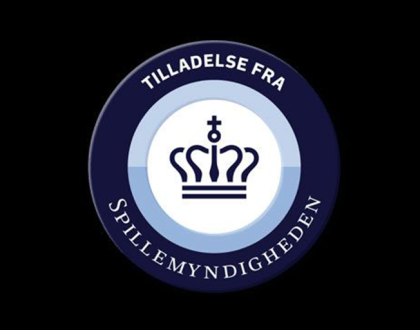The Role of Licensing in Responsible Gaming

Most countries around the world have stringent regulations in place to ensure that licensed operators adhere to responsible gaming practices. Licensing plays a crucial role in maintaining the integrity and trustworthiness of the online gambling industry. It is necessary for operators to obtain and maintain proper licenses to demonstrate their commitment to promoting responsible gaming and protecting players from potential harm.
The Framework of Gaming Licensing
Licensing Authorities and Their Mandates
Gaming licensing is overseen by regulatory bodies known as licensing authorities. These entities are typically government agencies or independent organizations mandated to ensure that gaming operators comply with the law and operate responsibly. They set the standards and regulations that gaming operators must follow to maintain their licenses, with the primary goal of protecting players and preventing criminal activities such as money laundering.
Criteria for Obtaining a Gaming License
Criteria for obtaining a gaming license vary depending on the jurisdiction, but they generally include factors such as the operators’ financial stability, integrity, and experience in the industry. Operators must demonstrate their ability to provide a safe and fair gaming environment for players and show transparency in their operations. Compliance with anti-money laundering regulations and responsible gaming practices is also a key requirement to obtain and maintain a gaming license.
For instance, in some jurisdictions, gaming operators are required to undergo thorough background checks to ensure they have no criminal record and are financially stable. Regular audits and inspections by the licensing authorities are conducted to ensure ongoing compliance with the set standards. Failure to meet these criteria can lead to fines, suspension, or even revocation of the gaming license, emphasizing the importance of meeting the stringent requirements set forth by regulatory bodies.
Licensing as a Regulatory Tool
Assuming the role of a gatekeeper in the iGaming industry, licensing serves as a crucial regulatory tool to ensure that operators adhere to strict standards and guidelines set forth by regulatory bodies. By obtaining a license, operators commit to meeting specific requirements aimed at promoting responsible gaming and protecting players.
Licensing Conditions and Compliance
Licensing conditions are established to create a framework for responsible gaming practices within the industry. Operators must meet stringent criteria related to player protection, such as conducting age verification checks, implementing self-exclusion tools, and promoting responsible gambling practices. Compliance with these conditions is monitored closely by regulatory authorities to maintain the integrity of the gaming sector and uphold the reputation of licensed operators.
Role in Protecting Players and Ensuring Fair Play
On the front lines of player protection, licensing plays a critical role in safeguarding the interests of consumers and preserving the integrity of online gaming. Regulatory bodies require licensed operators to adhere to strict standards regarding player security, game fairness, and responsible gambling measures. This oversight ensures that players are provided with a safe and fair gaming environment, free from fraudulent activities and unethical behavior.
Role players know their personal and financial information is protected when they engage with licensed operators. Rigorous checks and balances are put in place to oversee the operations of licensees, ensuring that players are treated fairly and their funds are secure. The credibility and transparency associated with licensed operators instill confidence in players, leading to a more sustainable and responsible gaming ecosystem.
Licensing and the Promotion of Responsible Gaming Practices
Encouraging Operator Accountability
To promote responsible gaming practices, licensing authorities play a crucial role in holding operators accountable for their actions. Your licensing regulations require operators to adhere to certain standards to ensure the protection of players. By enforcing strict guidelines and monitoring operators’ activities, these authorities can help prevent problem gambling and promote a safe gaming environment.
Licensing Requirements for Player Protection Measures
To ensure player protection, licensing authorities impose various requirements on operators. These may include implementing responsible gaming tools such as deposit limits, self-exclusion options, and age verification processes. On top of that, operators are expected to provide educational resources on responsible gambling and avenues for players to seek help if needed.
This ensures that players are well-informed and supported throughout their gaming experience. Strong licensing requirements for player protection measures are crucial in promoting a safe and responsible gaming environment and are important in preventing the negative consequences of problem gambling.
Licensing and Technology
Unlike in the past, where licensing in the gambling industry was primarily about legal compliance and revenue generation, it is now at the forefront of promoting responsible gaming. With the advancement of technology, licensing has evolved to incorporate innovative tools and systems that help monitor and enforce responsible gaming practices.
Technology Integration in Licensing for Monitoring
One of the key aspects of technology integration in licensing for monitoring is the use of sophisticated software algorithms that can track player behavior in real-time. These systems can analyze data such as gambling patterns, frequency of play, and amounts wagered to detect any signs of potential problem gambling. By leveraging such technology, licensing authorities can better identify and intervene to prevent harm to players.
Innovations to Support Responsible Gaming
One of the innovations that have emerged to support responsible gaming is the implementation of self-exclusion programs. These programs allow players to voluntarily ban themselves from gambling activities for a specified period. Additionally, personalized messaging and alerts can now be integrated into gaming platforms to promote responsible behavior and provide resources for assistance when needed.
Responsible gaming initiatives are crucial in ensuring the well-being of players and maintaining the integrity of the gambling industry. Through the implementation of innovative technologies and tools, licensing authorities can elevate their oversight capabilities and create a safer gaming environment for all participants.
International Perspectives on Licensing and Responsible Gaming
Many countries around the world have established their own licensing frameworks to regulate the gambling industry and ensure responsible gaming practices. These licensing models vary significantly across different jurisdictions, with some countries opting for a more stringent regulatory approach, while others take a more lenient stance.
Licensing Models Across Different Jurisdictions
On one end of the spectrum, some countries like the United Kingdom have a comprehensive licensing system that requires operators to meet strict criteria in order to obtain a license. This includes demonstrating a commitment to responsible gaming measures, such as offering self-exclusion options for players and implementing robust age verification processes. Failure to comply with these requirements can result in hefty fines or even the revocation of a license. On the other hand, countries like the United States have a more decentralized approach to licensing, with individual states determining their own regulations for online gambling.
Harmonization of International Licensing Standards
With the increasing globalization of the online gambling industry, there has been a growing call for the harmonization of international licensing standards. This would involve establishing a set of uniform guidelines that all countries can adhere to, regardless of their individual regulatory frameworks. By creating a standardized approach to licensing, countries can better combat issues such as money laundering, problem gambling, and underage betting.
Licensing harmonization would also promote a safer and more transparent gaming environment for players, while providing a level playing field for operators to compete on a global scale. By aligning licensing requirements internationally, countries can work together to effectively regulate the industry and protect both consumers and the integrity of the games.
Challenges and Future Directions
Overcoming Licensing and Regulatory Hurdles
Once again, the road to responsible gaming is not without its challenges. One of the significant hurdles in ensuring responsible gaming is the effectiveness of licensing and regulatory policies. Some jurisdictions may have lax regulations, making it easier for unscrupulous operators to take advantage of vulnerable players. It is vital for regulators to enforce strict guidelines and regularly audit license holders to ensure compliance with responsible gaming practices. By overcoming these hurdles, we can create a safer and more ethical gaming environment for all.
Future Trends in Licensing for Responsible Gaming
To stay ahead of the curve in promoting responsible gaming, we must look toward future trends in licensing practices. One trend to watch is the integration of advanced technology, such as biometric authentication and artificial intelligence, to enhance customer verification processes and detect signs of problem gambling in real time. Additionally, greater cooperation and information sharing among regulatory bodies can help create a unified approach to responsible gaming across different jurisdictions.
Trends in licensing for responsible gaming are poised to revolutionize how the industry operates. By leveraging cutting-edge technology and fostering collaboration between regulators, we can elevate standards and ensure that player protection remains a top priority in the gaming sector.
Summing up
The role of licensing in responsible gaming is crucial in ensuring that operators uphold ethical standards and provide a safe environment for players. By implementing stringent licensing requirements, regulatory bodies can hold operators accountable for promoting responsible gaming practices, such as age verification, self-exclusion options, and responsible advertising.
Overall, licensing plays a significant role in safeguarding the well-being of players and preventing problem gambling behaviors. It is necessary for regulatory bodies to continue evolving their licensing frameworks to adapt to the constantly changing landscape of the gaming industry and to prioritize responsible gaming practices above all else.
FAQs:
What is gaming licensing, and why is it important?
Gaming licensing is a regulatory process overseen by authorities to ensure gaming operators comply with laws and operate responsibly. It’s crucial for maintaining player trust and promoting responsible gaming practices.
What criteria do operators need to meet to obtain a gaming license?
Criteria vary but typically include financial stability, integrity, experience, and adherence to anti-money laundering and responsible gaming regulations.
What happens if operators fail to meet licensing criteria?
Failure can lead to fines, suspension, or revocation of the license, emphasizing the importance of compliance with regulatory standards.
How do licensing conditions promote responsible gaming?
Licensing conditions establish frameworks for operators to implement player protection measures like age verification, self-exclusion, and responsible gambling tools.
What role does licensing play in international gaming regulations?
Licensing harmonization efforts aim to create uniform guidelines across jurisdictions, ensuring a safer gaming environment globally.
Recommended Posts

MasterCard Payment Solutions for Online Casinos
July 1, 2024

Comparing Payment Methods – Pros and Cons
July 1, 2024

Denmark Gambling Regulations 2025
July 1, 2024



